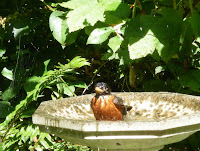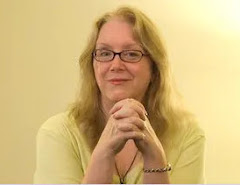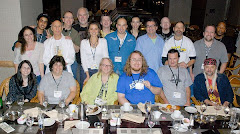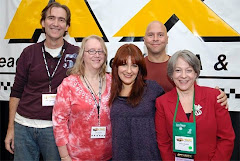Well… you see, we’re caught in this terrible bind.
We do need to learn something about what we are doing. As artists, we know we have to have craft, or skill, in order to produce our work effectively. We need to work hard to understand what is required, and practice doing it, so that we will become more expert at performing, or writing, or composing, or painting, etc.
And yet, at the same time, we want to express, we want to explore, we want to be organically in-the-moment feeling what we are doing.
If we focus too much on the mechanics, we run the danger of becoming mechanical, seized up, trying too hard.
If we let everything go and just perform organically, we lose something because we are not engaged in the act in the most effective way we could be - and our art suffers from our lack of craft.
So do we sacrifice craft for expression? Or do we forget feeling and work on precise execution?
Neither.
When we bring our work to our mentors to be assessed, we bring it knowing it is imperfect. We present it with humility and presence. We say, “this is the best I can do right now.” Accepting where we are is the first step to moving beyond it.
If we resist where we are ('I can’t sing a note on key, even if you paid me'), then our whole instrument is bound up in hiding that state from everyone. We may consciously be willing to step into the light and give it a go, but our whole body rebels against it. And no wonder, because many of us have been traumatized in the past by unkind remarks and unrealistic expectations.
So we come into the studio, longing to sing, but afraid. We have been programmed to believe that we are not capable. Perhaps we were told that we had no talent, perhaps we were told never to make a loud noise, perhaps we were told by a teacher not to sing with the rest of the class. Even if it was forty years ago, that embarrassment and that hurt still lives in us. But it can be overcome, with time and patience.
We begin by allowing ourselves to be precisely where we are, warts and all. We allow ourselves to sing off key. We allow ourselves to not be able to coordinate things effectively. We allow ourselves to attempt to do what we are asked, knowing that we will indeed fail.
In order to progress, we must accept our own state of imperfection. We don’t know how to do it, that’s why we’re in the studio with a teacher. We can’t keep all the balls in the air – we’re not expected to.
We are challenged to sing, knowing that we won’t achieve everything that is being asked of us. And then we’re asked to repeat the act, keeping what happened right, and attempting to add what was missed. Sometimes we can. Sometimes we can’t. But either way, the roof never caves in. If we missed something, we simply try again. If we managed to get it all… guess what, the next thing we do is sing another scale… and the whole thing starts again.
In songwriting, composing, writing, singing, acting, dancing, painting, etc…. feedback is how we learn. Effective critique gives us understanding, gives us tools, gives us support. It never criticizes. We need to accept feedback as part of the process, knowing that whatever state of ability we demonstrated in the moment is separate from our worth as a human being. We have to try to be emotionally detached from our work. And it is the responsibility of the teacher/mentor to ensure that our process is supported.
So lessons aren’t just about performing the mechanical tasks of the artform. Lessons are also about understanding our Self. How do I think? How do I view feedback? How negatively do I think about myself and my abilities? How patient am I with myself? Hmmm…
The true challenge of walking the path of discovering the artist within, is embracing your own imperfection… and shining a light on it… and saying “Look at that. So, I have more to learn. That’s okay. Keeps life interesting. Now I know what to work on for next time.”

















